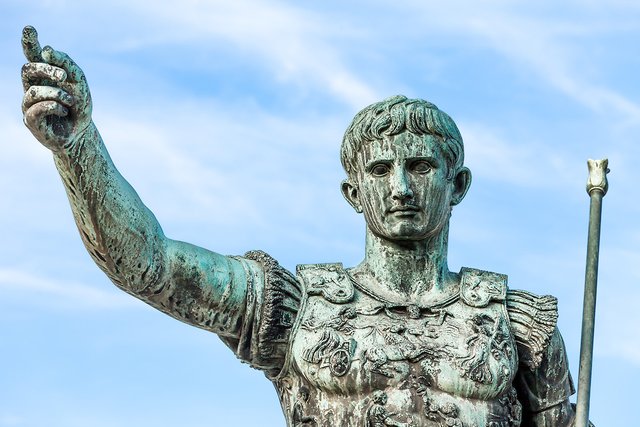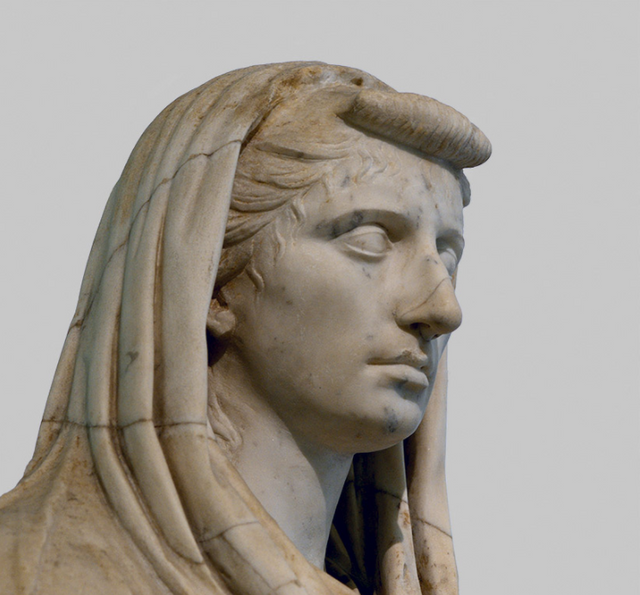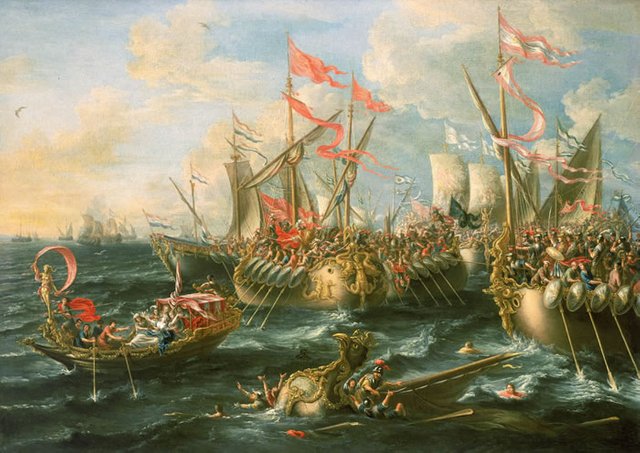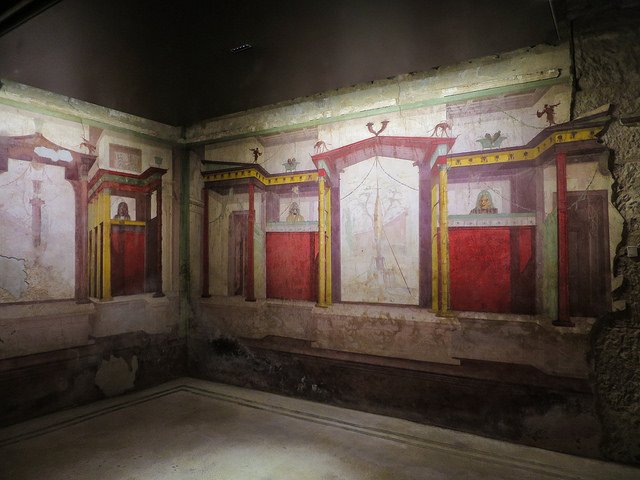Octavian Augustus: The First Emperor of Rome
Following Julius Caesar's assassination in 44 B.C. a scramble for power erupted. The Republic was never designed to support a "dictator for life", so no formal process to replace him was ever created. However, Caesar already had someone prepared.

Ruling an Empire
Born Gaius Octavius, he was appointed heir by Caesar. Nephew by birth, he later adopted him as his own son. He was weak, sickly, and had a disease that left spots on his body. No one thought he would get any power, therefore he was easily discounted. However he had confidence and ambition.
In 43 B.C. he set up the second triumvirate between Marc Antony, Lepidus, and himself. This split the empire into 3 parts: Marc in the east, Lepidus in the west, while Octavian remained in Rome. Lepidus didn't last for long as Octavian demanded he stand down after he borrowed some of his soldiers. So it's really just Marc and Octavian, an alliance they cemented once Marc married Octavia, Octavian's sister.

Marc moved Octavia to Greece while he moved to Egypt. There he met Cleopatra and began a romantic relationship with her. After learning what he was doing, Octavian told Marc to cease, and he did for a while but eventually divorced Octavia and returned to Cleopatra. Octavian was so furious, he visited the vestal virgins and retrieved Marc's will so that it would be read in public. By doing this, the Roman public realized Marc was leaving everything to Cleopatra and their three children, nothing at all for Octavia.
While anyone could become a citizen, Romans thought of Egyptians as second-class. In fact, when Antony brought Cleopatra to Rome, people threw rotten fruit at her, saying she was the "whore of Egypt". Knowing what was in his will, they really didn't like her any better after this. People were so angry, that Octavian was able to convince the Senate to declare war on Marc Antony. In 31 B.C. he arrived in Egypt to fight in the Battle of Actium, however he won in part because Antony killed himself. Initially, he was not let into the stronghold where Cleopatra was held up in, but eventually they died together.

Alone At Last
With both of them dead and Lepidus gone, Octavian is left to control Rome. He took Egypt and made it his personal province. Romans were not allowed in without his express permission. Since Egypt was now his own, all of its wealth also became his. When he returned to Egypt in 27 B.C. he had a ceremony where he symbolically gave back power to the senate. In exchange, the Senate gave him the title 'Augustus', which meant "the revered one". Octavian referred to himself instead as 'princeps', first among equals.
Not only did he hand back power, he did everything he could to prevent himself looking like a king. He even went so far as building a small home, in order to appear as though he were returning to traditional Roman values. These were just grand gestures to fool the public. His small house was drab on the outside, but luxurious on the inside. Octavian kept the fiction of the Republic alive by appearing before the Senate for advice, but in reality he still controlled everything.

He ruled well and fairly, and without him, ambitious Romans would have pulled Rome apart. Octavian even set a precedent for every Roman emperor after him that every citizen had the right to be heard. He lived from 30 B.C. to 14 A.D. and ruled for 44 years. After Octavian, the Republic was dead and only emperors ruled from then on. Once you have an emperor not chosen by the people, the only way to get rid of them is to deal with it, or raise an army and fight back.
Thank you for the post @vestabesta, the first century AD was the know as the August century, the most prosperous century for the Roman Empire, he changed Rome and history forever.
Peace, Carlos
Indeed it was. Imagine how disastrous it may have been if Augustus never took control.
Heyy really nice post:) It was verry useful.Please check my little journey that I made soon. I hope you enjoy my photos. @nakedchef89
https://steemit.com/history/@nakedchef89/what-is-the-oldest-civilization-on-earth